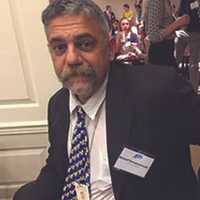During his tenure as archbishop of Washington, Cardinal Wilton Gregory acknowledged a terrible wrong – and attempted to soothe the pain it has caused – by blessing, honoring and showing respect for the gravesites of enslaved people who lie in parish cemeteries, mostly without name markers.
“There are literally thousands of people who rest unidentified in our cemeteries who were slaves and whose identity and names were considered inconsequential and unimportant to record,” the cardinal once said. “They may be nameless in local history, but not before God.”
He has conducted a series of pastoral visits to parishes that have cemeteries that hold the remains of enslaved men and women. There, he would remind the faithful of the dignity of those who lie in undignified plots.
At one such visit – on Feb. 25, 2023 at Sacred Heart Parish in Bowie, Maryland – he pledged that “the lives and the identity and the dignity of the people who were once in shackles will be held in honor by those of us who remain.”
The Sacred Heart Parish chapel is built on property that was part of one of the plantations owned by members of the Society of Jesus (the Jesuits) in Maryland in the 1700s and 1800s. Unmarked graves were discovered there through the use of ground penetrating radar.
It is believed that the graves of more than 600 enslaved people who worked at that plantation may be located on parish property there. Some of those buried in the graveyard may be related to the 272 enslaved men, women and children the Maryland Society of Jesus sold in 1838 to Louisiana plantation owners which helped finance Georgetown College, which is now Georgetown University.
“We are trying – to the best of our ability – to allow the people whose lives were bound up in slavery and whose death mattered little to those who survive them, we are trying to make sure that their lives are not lost, but more importantly, that their memories are not lost,” Cardinal Gregory said at the time.
Before the discovery of the gravesites at the Bowie Parish, Cardinal Gregory was blessing and drawing attention to the unmarked graves of formerly enslaved persons at other church properties. He was continuing the work that began by his predecessor – Cardinal Donald Wuerl.

In 2018, Cardinal Wuerl, then the archbishop of Washington, celebrated a Mass to honor unknown and unidentified enslaved men, women and children buried in parish cemeteries. At that Mass, he blessed memorials that would later be placed in archdiocesan cemeteries.
The blessings have been especially moving to Cardinal Gregory, this country’s first African American cardinal and the first African American archbishop of Washington.
At a Nov. 26, 2022 blessing of a memorial to honor the unknown enslaved people buried in the parish cemetery at St. Peter Claver Church in St. Inigoes, Maryland, the cardinal reflected on the personal affect this effort has had on him.
“It was terribly emotional to be able to stand here and bless these graves of former slaves. It put me in touch with my own roots,” he said after that ceremony. “I can’t help but think that the many people buried here without a marker had to wait for an African American cardinal to bless that memorial honoring them.”
The memorial, he said, honors “the places in which the bodies of those who suffered the pain and injustice of slavery lie at rest, awaiting the dawn of the Lord’s coming in glory.” He added that “the people that we honor today in St. Peter Claver’s cemetery are nameless, but in God’s kingdom, they have a name.”
Conducting a similar blessing on Nov. 26, 2023 at the parish cemetery of St. Ignatius Church at Chapel Point, Maryland overlooking the Port Tobacco River, Cardinal Gregory said he blessed the unmarked graves “in a spirit of repentance.”
In his blessing Cardinal Gregory acknowledged “the pain and injustice of slavery” as well as hurt to the descendants of those who were enslaved, all of whom “await the coming of the Lord in glory.”
He prayed that God would “look upon all these graves and to bless them, so that while we bless the places where the bodies of your servants are buried, their souls may be taken to paradise.”
In carrying out these blessings, Cardinal Gregory once said that he is aware that “the faith that sustained these (enslaved) people was the same strength of faith that sustained the early Christians.”










